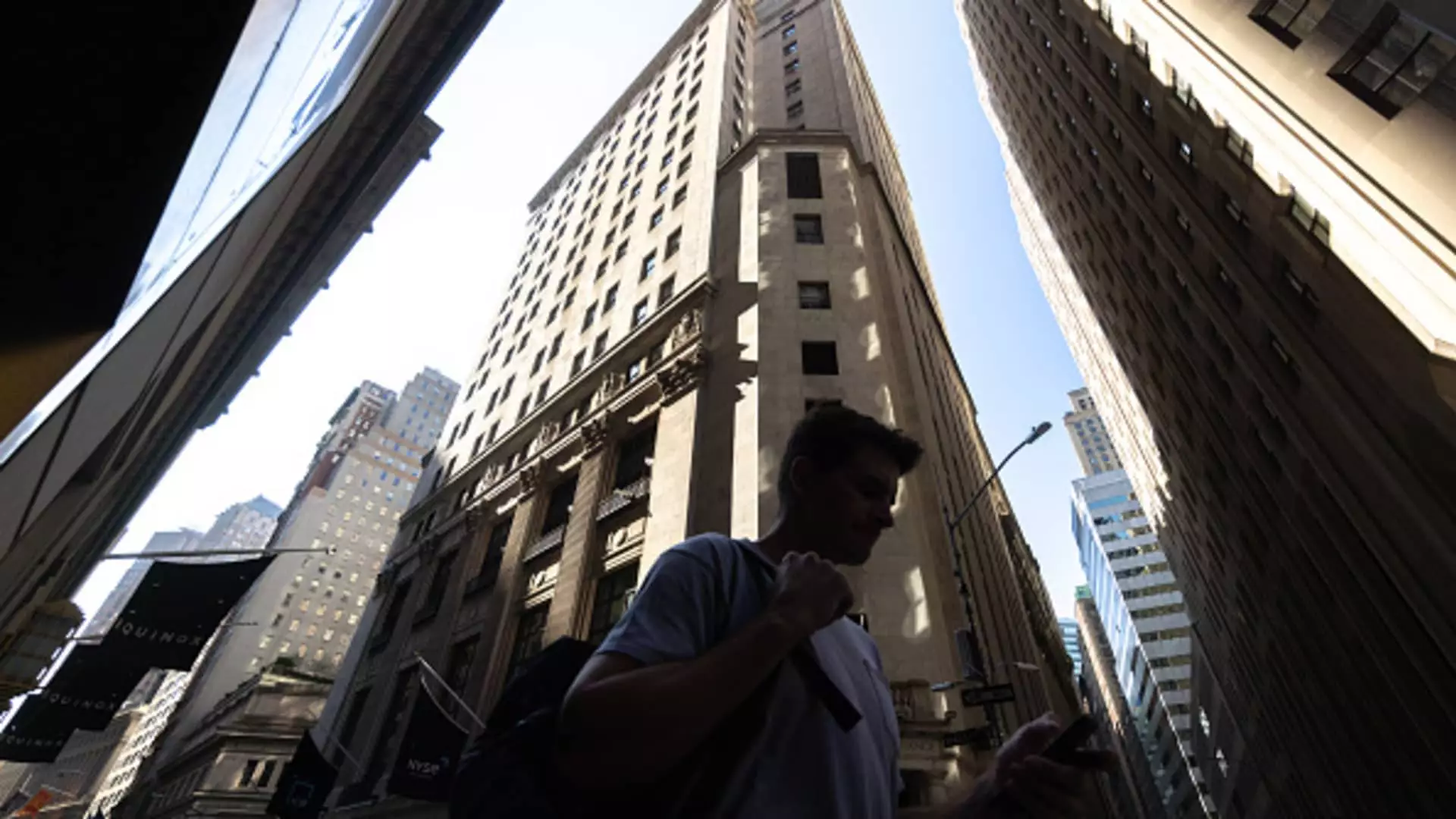While some may view the quick resurgence of market confidence as a positive sign, the head of asset allocation research at Goldman Sachs, Christian Mueller-Glissmann, warns that it should be cause for concern. The recent global sell-off in risky assets was followed by a speedy return of investor optimism, leading Mueller-Glissmann to liken the early August stocks slump as a “warning shot.” This cautionary tone is important to consider in the context of the current market landscape.
Market participants were taken aback by the intense pressure on stock markets at the beginning of August, fueled by fears of a U.S. recession and concerns surrounding popular “carry trades” associated with the Japanese yen. The S&P 500 experienced a significant 3% loss on August 5th, marking its largest single-day decline since 2022. However, the subsequent rebound in stock prices can be attributed to expectations of impending interest rate cuts by the Federal Reserve and positive economic data coming out of the U.S. While this may seem like a positive development, Mueller-Glissmann’s apprehension stems from the speed at which the market has recovered.
Mueller-Glissmann points out that prior to the market corrections, there was a notable bullish sentiment among investors, which was accompanied by negative U.S. macroeconomic surprises for several weeks. Additionally, weakness in the European and Chinese markets further fueled concerns. The hasty return to pre-sell-off levels raises questions about the underlying stability of the market and serves as a reminder of the fragility of investor confidence.
As investors await the release of key economic indicators, such as the U.S. inflation report, there is a sense of uncertainty about the future. The Federal Reserve’s plan to adjust its policies has sparked speculation about a potential rate cut in September, further muddying the waters for market participants. Mueller-Glissmann’s observation that the recent market fluctuations may have been a technical overreaction underscores the need for caution and strategic planning moving forward.
In light of the recent market turbulence, Mueller-Glissmann emphasizes the importance of maintaining a balanced portfolio. While a 60/40 portfolio performed well during the volatile period, he warns that the buffer provided by bond markets may not be as reliable in the immediate future. As the market continues to exhibit signs of uncertainty, investors are advised to exercise caution with their risk exposure and carefully assess their investment strategies.
By taking heed of Mueller-Glissmann’s insights and closely monitoring economic developments, investors can navigate the current market landscape with greater awareness and preparedness. The rapid shifts in market sentiment and the lingering uncertainties surrounding global economic conditions serve as a sobering reminder of the risks inherent in the financial markets. As market confidence teeters on a delicate balance, it is essential for investors to approach their investment decisions with prudence and foresight.


Leave a Reply